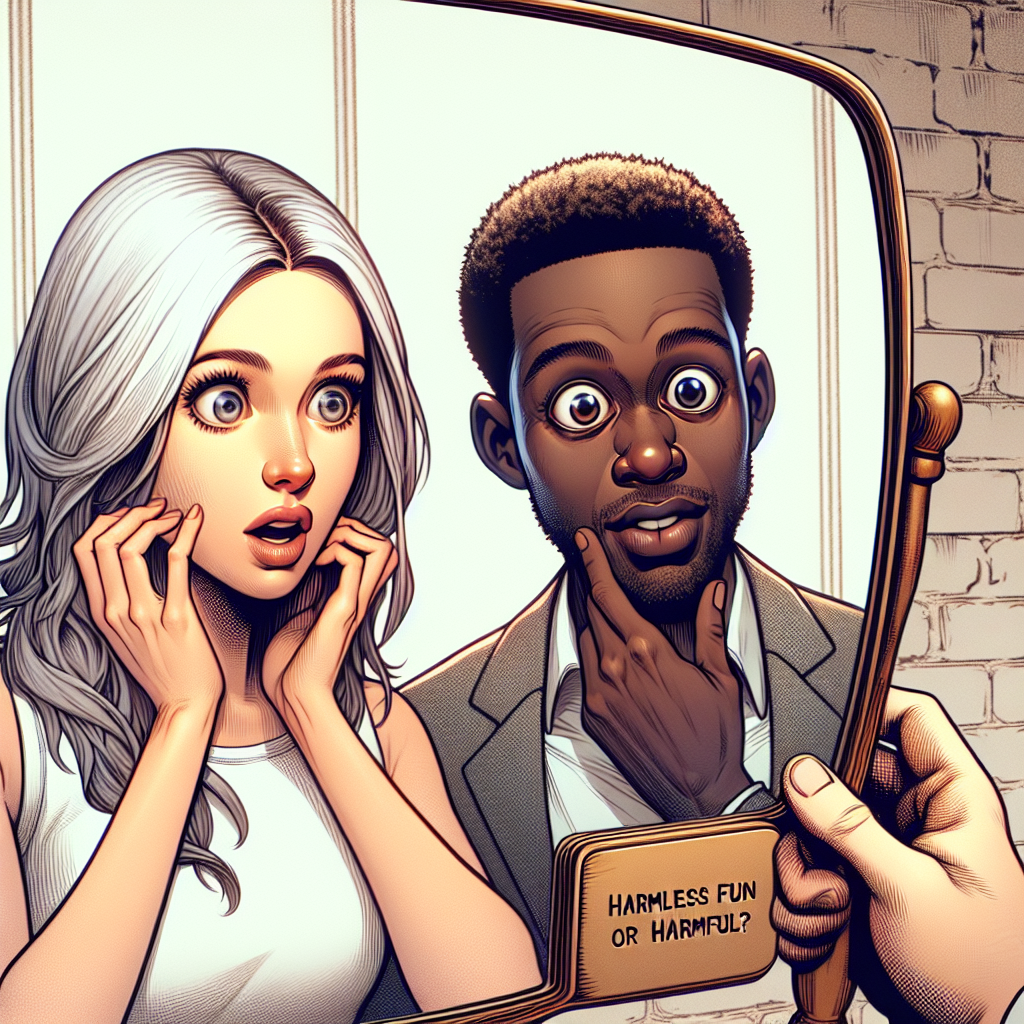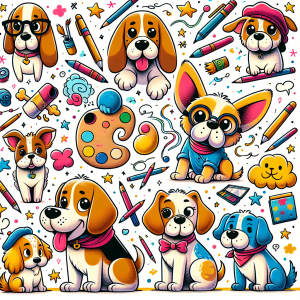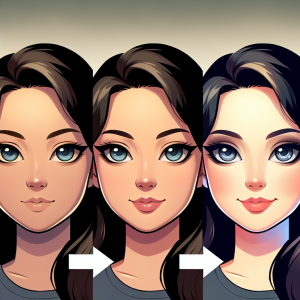Are cartoon face filters just harmless fun, or do they have the potential to be harmful? In the age of social media, these filters have become a popular way for people to alter their appearance and have some lighthearted fun. But as their popularity continues to grow, the ethical implications of these filters are increasingly coming into question. Is it all just innocent entertainment, or is there a darker side to these seemingly harmless tools? Let’s explore the ethics of cartoon face filters and dive into the debate over their impact on society.
The Rise of Cartoon Face Filters
It’s hard to ignore the prevalence of cartoon face filters on social media platforms. From Snapchat to Instagram, these filters allow users to transform their appearances with just a few taps on their screens. Whether it’s adding cute animal ears and whiskers, or altering facial features to look like a cartoon character, these filters have undoubtedly become a staple of online self-expression.
The Argument for Harmless Fun
Many people argue that cartoon face filters are simply a form of light-hearted entertainment. They see them as a way to add some fun and creativity to their social media posts, without any harmful intentions. After all, who doesn’t enjoy seeing themselves as a fluffy bunny or a goofy cartoon character from time to time?
Freedom of Expression
Proponents of cartoon face filters often point to the idea of freedom of expression. They argue that individuals should have the right to alter their appearances in any way they see fit, whether it’s through makeup, filters, or other means. As long as it’s all in good fun and doesn’t cause harm to others, why should anyone take issue with it?
Empowerment and Self-Confidence
Some also argue that cartoon face filters can actually be empowering for individuals. By allowing people to experiment with different looks and express themselves in new ways, these filters can boost self-confidence and encourage creativity. For those who may not feel comfortable in their own skin, these filters offer a safe space to play around with their identities and explore new aspects of themselves.
The Argument for Harmful Effects
On the other hand, critics of cartoon face filters point to potential harmful effects that these tools can have on individuals and society as a whole. From perpetuating unrealistic beauty standards to causing psychological harm, there are valid concerns to consider when evaluating the ethics of these filters.
Perpetuating Unrealistic Beauty Standards
One of the primary criticisms of cartoon face filters is their potential to perpetuate unrealistic beauty standards. By constantly presenting altered and idealized versions of oneself, users may feel pressure to live up to these unattainable standards in real life. This can lead to issues with self-esteem and body image, especially among young and impressionable individuals.
Impact on Mental Health
There is also concern about the impact of cartoon face filters on mental health. It’s no secret that social media can contribute to feelings of inadequacy and low self-worth, and these filters may exacerbate these issues. Constantly comparing oneself to filtered and airbrushed images can take a toll on mental well-being, leading to anxiety, depression, and other psychological struggles.
Finding a Balance
So, where does the balance lie between the harmless fun and potentially harmful effects of cartoon face filters? It’s clear that the ethical implications of these filters are complex and multifaceted, and there is no easy answer to this debate. However, it’s important for individuals and society as a whole to be aware of the potential impacts of these filters and to approach their use with caution and mindfulness.
Critical Thinking and Media Literacy
One way to navigate the ethics of cartoon face filters is to encourage critical thinking and media literacy. By being aware of the potential pitfalls of altered images and being able to discern between reality and digital facades, individuals can approach these filters with a more discerning eye. Educating the public about the behind-the-scenes manipulation of these filters can also help to foster a more informed and empowered user base.
Promoting Authenticity
Another approach is to promote authenticity and self-acceptance, both online and offline. By celebrating diverse appearances and encouraging genuine self-expression, we can create a more positive and inclusive environment for everyone. This shift in focus can help to counteract the detrimental effects of unrealistic beauty standards and foster a healthier relationship with self-image.
FAQs
Are cartoon face filters always harmful?
Not necessarily. While there are valid concerns about the potential harmful effects of these filters, they can also be used in a lighthearted and harmless manner. It ultimately comes down to how they are used and the mindset of the user.
Should cartoon face filters be regulated?
The idea of regulating cartoon face filters is a contentious one. While some argue for stricter regulations to protect against potential harm, others advocate for individual responsibility and awareness. Striking a balance between freedom of expression and protection from harm is the key to addressing this issue.
What can individuals do to mitigate potential harm from cartoon face filters?
Being mindful of the potential impact of cartoon face filters and approaching their use with a critical eye is essential. Additionally, promoting authenticity and self-acceptance can help to counteract the detrimental effects of these filters.








+ There are no comments
Add yours